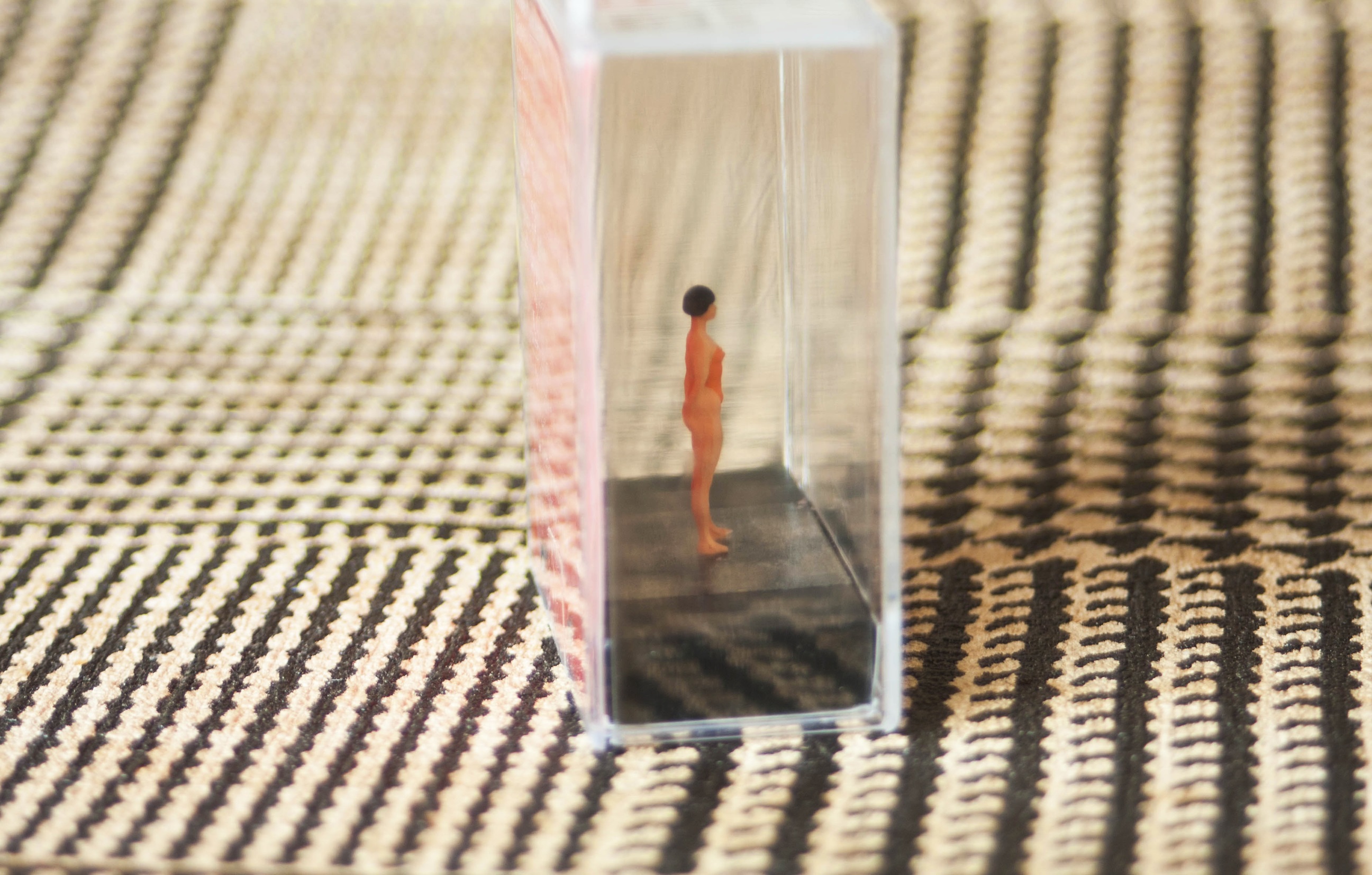Many eagerly anticipate the warmth and leisure of summer, but individuals struggling with body image issues and body dysmorphia disorder (BDD) often approach the season with dread, bracing for the increased exposure and heightened scrutiny that comes with it.
BDD is a common mental health condition characterized by an overwhelming fixation on perceived flaws or minor imperfections in one’s physical appearance, often leading to distress.
While some might believe that BDD is rooted in vanity or self-absorption, it is a real disorder and can significantly disrupt one’s daily life, affecting from 1.7 percent to 2.4 percent of people worldwide.
The seasonal shift of the summer intensifies anxieties about appearance, weight, and body size, amplifying fears of judgment and struggles against societal pressures that continue to shape our perceptions of body image. Individuals with BDD often fixate on perceived flaws in their skin, nose, hair, and other small features.
“If I feel like I’ve gained a bit of weight, I become obsessed and hyper-focus on my calorie intake,” Adel Arafa*, a 29-year-old man, told Egyptian Streets. “I am not sure if this is body dysmorphia disorder or an eating disorder, but gaining weight brings me down so much that I start nitpicking everything that’s wrong with me.”
BDD can affect individuals of both genders and across all age groups. However, it manifests during adolescence and early adulthood, according to the National Health Service, a healthcare system and website.
The symptoms of BDD
A 2023 study among 636 students at Alexandria University in Egypt revealed that 5.3 percent of students had symptoms of BDD, significantly more common among women, with 8.5 percent of females and 2.2 percent of men experiencing symptoms.
The symptoms of BDD include preoccupation with personal flaws in appearance that are often unperceived by others. Symptoms also include a belief or feeling of being deformed or ugly, hyper-focus on fixing or hiding said flaws through skin picking, excessive mirror checking, and usage of makeup to conceal said flaws. Comparing oneself looks to others is also a symptom of BDD, along with seeking outer validation for looks.
“Sometimes I find myself spending too much time thinking about my appearance, and it makes me super self-conscious,” Doaa Mamdouh*, a 23-year-old Egyptian woman, said.
The Alexandria University study concluded that the leading areas of concern were skin, cited by 36.6 percent of students, and belly size, which troubled 36.2 percent.
“I always feel too fat, and those clothes hardly look good on me,” Rehab Tareq*, a 27-year-old woman, told Egyptian Streets. “My face is too full and puffy, and my belly is not flat, making all clothes look unflattering.”
The symptoms of BDD, along with seeking unattainable perfection, can lead to avoiding social situations altogether. Mamdouh said, “Sometimes I avoid going out and cancel plans because I find myself focused on my flaws and how bad I look.”
According to the Alexandria University study, increased time spent on social media was linked to nearly a threefold higher likelihood of experiencing BDD symptoms, highlighting the potential influence of digital platforms on body image perceptions.
“In the summer, social media is all about pictures on the beach and vacation shots, which makes me compare myself to others and feel less confident,” Mamdouh said.
Arafa echoed these thoughts, stating, “Sometimes I compare myself to people I see on social media and find myself wishing I looked like that.”
Tareq shared her opinion on social media, saying that it makes her compare herself to others and leads her to body shaming.
She explained that social media creates an illusion. “I buy my clothes from online stores on social media. I know the models wearing the clothes are professionals whose jobs are based on having a ‘good’ body and features, but seeing how the clothes fit them and then fit me is outrageous. It looks completely different, and it wrecks my confidence.”
The Alexandria University study also found complex cooperation between social, psychological, and behavioral factors contributing to body image concerns and the development of BDD.
Individuals who were exposed to bullying are six times more likely to display BDD symptoms. Additionally, the reluctance to seek support when needed was associated with a threefold increase in the likelihood of experiencing BDD symptoms.
Beauty Standards
According to a 2019 research paper published in the National Library of Medicine, social media plays a crucial role in promoting unrealistic beauty standards, which can influence behaviors related to the beauty ideal.
Mamdouh believes society’s beauty standards are high. “It’s hard not to feel like I have to look perfect all the time.”
Heba Alaa*, a 31-year-old woman, said, “Societal expectations and standards highly affect my self-image.”
She continued, “The pressure from society to meet certain standards puts great pressure on me and leads me to a never-ending loop of me searching for and striving to achieve the perfect image that society and people expect of me as a woman.”
Arafa agreed with Alaa, explaining that being ‘skinny’ is his goal. His pet peeve is gaining a bit of weight. He said, “If I put on a kilogram of weight, I start to hate my body. I try to follow a diet and go to the gym, even though I don’t like going to the gym or working out. I go to the gym because I feel like I have to to be able to love my body, and out of guilt.”
Even though BDD symptoms can be heightened by stress over one’s weight, reaching a specific weight or fixing one problem does not fix the problem.
Tareq explained that she was 42 kilograms in her late teens and early 20s, feeling too skinny and judged for being skin and bones. “I couldn’t wear anything; everything was too big,” she said.
After she gained more weight and reached 62 kilograms, she still couldn’t wear what she wanted. People still commented on her looks, saying she had become chubby. She said, “I always feel fat, disproportionate, and ugly.”
Treatment of BDD
Combating BDD entails cognitive behavioral therapy (CBT), which is a comprehensive approach designed to address the intricate web of negative thoughts, emotional reactions, and behaviors that perpetuate the disorder over time.
CBT could help individuals recognize and challenge automatic negative thoughts about their body image, fostering more flexible and realistic ways of thinking. It also emphasizes the importance of addressing social avoidance and increasing engagement with healthy supports and activities.
Alaa emphasized the importance of spreading awareness about BDD, as it could help people see therapy and find strong and positive support systems. She said, “If there are more representations of different body types in the media, it could normalize that everyone looks different.”
For Mamdouh, seeing more diverse and realistic bodies in ads and media would be lovely.
*Names have been changed to protect the privacy of the individuals.







Comment (1)
[…] post Egyptians Grapple with Body Dysmorphia at the Onset of Summer first appeared on Egyptian […]